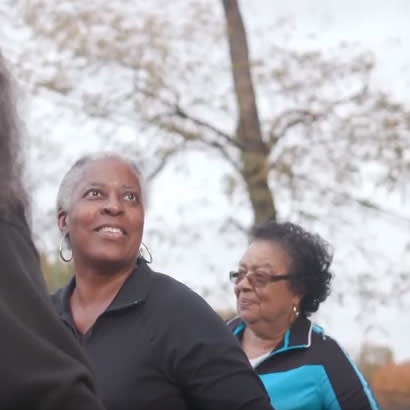
Talented, knowledgeable and caring professionals stand at the helm of park and recreation agencies serving as community wellness hubs that provide programs and services that improve the health, wellness and quality of life for people of all ages. But in recent years, more and more agencies have been reinventing their older adult programs to meet the needs (and desires) of this rapidly increasing population. To help address this growing need, NRPA has been working to equip park and recreation professionals with the resources they need to help older adults in their communities get active and achieve better health outcomes.
Since 2013, NRPA, with support from the Centers for Disease Control and Prevention, has been providing funding to local park and recreation agencies to support the delivery of three evidence-based chronic disease prevention and management programs:
- Active Living Every Day (ALED)
- Fit & Strong! (F&S!)
- Walk With Ease (WWE)
As part of NRPA’s Healthy Aging in Parks Initiative, these programs support the physical, mental and social well-being of older adults, primarily those living with chronic conditions like arthritis, diabetes and heart disease. To date, nearly 300 park and recreation agencies across 48 states and American Samoa have offered one or more of these programs to more than 23,000 participants.
“As soon as I hear that [it’s evidence based], I know that there’s been lots of research, lots of studies done and that you’re going to see results when the person takes the program,” said Barb Blum, Active Living Every Day instructor at the Juanita Pohl Center in Tualatin, Oregon. This center is one of the many locations that have provided the space for older adults to participate in the Healthy Aging in Parks programs.
During ALED, participants sit in on a weekly, 1-hour class to learn new ways to incorporate movement into their daily lives. The group discusses barriers to being active, ways to overcome these barriers and share the progress they’ve made.
The multicomponent F&S! program combines health education with physical activity. A 60-minute physical activity class is combined with a 30-minute discussion in a group setting. This program has been designed to help participants, particularly those with lower extremity pain and stiffness, improve their confidence in their ability to exercise and adhere to exercise over time.
In WWE, groups participate in a low-impact walking program. It teaches older adults how to safely and comfortably engage in physical activity, set goals, increase flexibility, build endurance and increase strength.
See these programs in action in NRPA’s video below, Healthy Aging in Parks: Evidence-Based Programs Benefit Older Adults. You can also learn more on the NRPA Evidence-Based Interventions webpage.

